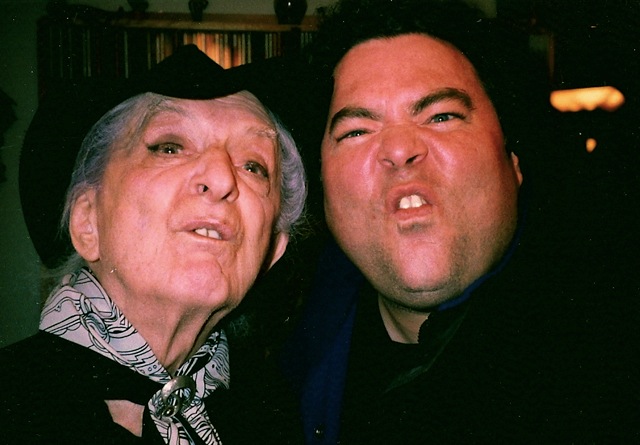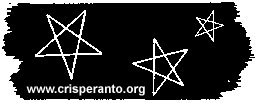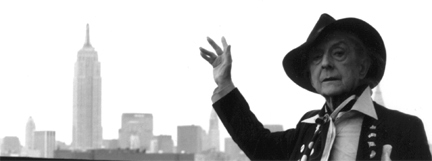I’ve known Quentin Crisp for 18 years now. It’s easy to describe him as the most vivid person in my life. But author James Purdy said it best when he once told me, "Quentin is more himself than anyone alive." Quentin would demur, insisting that he has—and had—no choice. This, in turn, is what most people would define as rare courage. For in a time and place when most homosexuals were not only closeted, but completely invisible, Quentin emphasized and paraded his effeminacy, if not with what we now call pride, then certainly with invincibility. His openness nearly cost him his life on a number of occasions, and—to say the least—restricted his career options. But his insistence on being completely himself gave him insights that few people of our century ever attained. He has also lived ninety healthy years, the happiest of which have probably been these last 18 years spent in the East Village, where he chooses to live in a dilapidated studio apartment. "And I’ve never worked, in all that time! Isn’t that wonderful?"
Writing is obviously not Quentin’s idea of work. He is the author of a number of books; the best known is The Naked Civil Servant. When the book was made into a film (for Thames Television) in the early 1970s with John Hurt playing Quentin, he was catapulted to international fame. He began performing a one-man show in London, telling bewildered and enchanted audiences how to have a lifestyle, how to become a virgin, why one must never do housework, have a lover, keep a pet, or try to keep up with the Joneses: "You must drag the Joneses down to your level," he explained. The show, which also featured some truly remarkable question-and-answer sessions, attracted the attention of the esteemed director/choreographer Michael Bennett, who first brought Quentin and his show to New York in 1977. It was mutual love at first sight.
Probably the greatest love of Quentin’s life is the movies. In his book How To Go To The Movies (St. Martin’s, 1989), he wrote, "If we go to the movies often enough and in a sufficiently reverent spirit, they will become more absorbing than the outer world, and the problems of reality will cease to burden us."
It was movies that brought us together. When I was the editor of Christopher Street magazine and the New York Native, Quentin’s agent called and asked whether we’d be interested in movie reviews from him. I was absolutely thrilled, of course, and a week later Quentin and I went to see Tootsie. The rest is gay history. For most of the last 18 years, Quentin reviewed a movie or two every month for Christopher Street, and in the mid-1980s, the publisher, Chuck Ortleb, suggested that he begin keeping a diary every week in the Native. (Both the reviews and the diaries have been collected in book form, and a new gathering of diaries is being assembled.) We were even in a movie together— Jonathan Nossiter’s Resident Alien, an engrossing exploration of Quentin’s life in New York.
A few months ago, I looked Quentin over and said, "You know, you look almost exactly as you did when we first met 18 years ago." Without a beat, he replied, "That’s very deliberate." As the shadows lengthened on a late September Sunday afternoon, I asked Quentin some burning questions.
Tom Steele: Why do you believe in hell and damnation?
Quentin Crisp: Because it’s so exciting. Besides, if there’s no hell and no damnation, you can do any old thing. St. Paul (Mr. Tarsus to you) said it was better to marry than to burn—not a hearty recommendation for the state of matrimony. But he was the public relations officer for the whole sin movement. Until he was born, there was no sin. The culture before Christianity was Greek, and Mr. Zeus is the only tyrant who remained in office after it was discovered he was a sex maniac.
TS: So sin had to be invented.
QC: That’s right, yes.
TS: What is the most unforgivable sin?
QC: The most unforgivable sin in Christianity is despair.
TS: What’s the most outrageous thing you’ve ever done?
QC: Well, I‘ve only made two decisions for myself in the whole of my life. One was to leave home when I was 22, and the other was to leave England when I was 72. And both were like falling off a cliff in the dark.
TS: Both decisions worked out pretty well for you.
QC: But as for outrageous, I try not to outrage anybody. I don’t understand it now, from a distance. I wore makeup, but I didn’t advise anybody else to wear makeup. I didn’t look at anybody, I didn’t speak to anybody. And as I walked through the streets, all you had to do was look the other way. Why was it so outrageous? What I realize now was that my sin was not my homosexuality, but my effeminacy. England is a very masculine country. They don’t like effeminate women! You see, American men indulge their women. They call them "sugar" and "honey" and "baby." English men call their wives "old girl." Who wants to be an old girl? The nicest thing an Englishman can say about a woman is, "She’s as good as a man." And so, I’ve come from a very masculine country to a very feminine country. America has a deep eagerness to please, which is very feminine.
TS: What’s the most mundane thing you’ve ever done?
QC: Well, my whole life is mundane. I get up, I dress, I go and sit in a café and have a meal, and then I go back and do nothing. It’s all the view of other people that my life is exotic. Luck has played an enormous part in my life. As you know, within one month, I developed carpal tunnel syndrome, the paper I wrote for, the Native, folded, and my agent died. I took this all as a sign from You Know Who that my career as a writer had ended. And in that moment, a British policeman in San Diego—who ruled Brixton, which is Harlem for London—arose and asked my agent [right before she died] if I would be in an organization called Authors On Tour. And because she was my agent, she told him that I did a one-man act, and that it was marvelous and staggering and wonderful. And because he was a policeman, he believed her. So now I’m in the speaking racket, instead of the writing racket. And that’s purely by chance.
TS: You always say, "Music is a mistake." Why?
QC: Because it’s the most noise conveying the least information. I come from a silent world. I never heard my parents say, "If we’re going out to a meal, let’s find a quiet restaurant." You go to restaurants in New York, and you can’t hear what the waiter says. Americans want everything to be loud and dark. I want everything to be well-lit and quiet, so that I can be seen and heard.
TS: What’s the best movie you’ve seen recently?
QC: The General's Daughter. When I first saw Mr. Travolta, he was a horrible, twitching, stick-like figure in Saturday Night Fever. Then he went away and hid, not unnaturally. And we know what he was doing while he was away: eating. He’s a wonderful man. And even when he’s in the distance, you can tell by the way he walks what kind of man he’s become. It’s a wonderful movie. But then, if someone isn’t killed within the first seven minutes of a movie, I’m disappointed.
TS: Who is the best living actress?
QC: Well, Meryl Streep is the only living actress, because all the others are stars. And it is not the duty of a star to act. It is only their duty to glow. But Miss Streep learned enough Polish to be in Sophie's Choice and enough Danish to be in Out of Africa and enough Jewish to be in Heartburn.
TS: What about Hepburn?
QC: No, she’s a star. Katharine Hepburn was once asked what star quality was. And she said, "I haven’t the faintest idea, but I’ve got it."
TS: Best living actor?
QC: The greatest speaker of verse is John Gielgud, of course. But the greatest actor . . . I don’t really know. Mr. Willis is the only actor who doesn’t have to act manly. He is manly. The most splendid actor I’ve ever seen was Al Pacino. I was taken to see American Buffalo and there was no stage, and he walked past me so that I could have touched the hem of his garment. And he was blazing. It was extraordinary how vivid his personality was.
TS: What’s the most erotic scene ever filmed?
QC: The most erotic scene ever filmed is in Metropolis. The wicked people decide to distract the rich from what they are doing to the poor, and they offer her Miss Helm. And you are taken into a kinky cinema, and you look across the heads of an entirely male audience to a tinseled curtain, which parts, and Miss Helm appears dressed in black satin up to the chin and down to the ground. And she parts her skirt and takes from her fat thigh her Diamonte garter and throws it into the audience and the hands go up to receive it, and when they go down, she’s gone. It’s a wonderful scene.
TS: Who is your favorite writer?
QC: If I were left on a desert island with only one book, I would choose Monsieur Proust’s A La Récherche du Temps Perdu, because everything in that book is keyhole literature—it is all something you should never have been told.
TS: That’s my favorite book, too, despite its sprawl. He set out to convey a universe, and he did it!
QC: That’s right.
TS: What are you doing for the millennium?
QC: I shall ignore the millennium. I think that January 1, 2000, will be just like the previous day. But I’m told that this is the wrong way to view the situation. It is to be an excuse for a street party. Everyone will go mad and dance in the streets. Well, I can dance in the street anytime.
(This was one of the last interviews Quentin gave, and Tom Steele did it, for Our Town, about a month before he died. They did the interview at Mr. Steele's apartment in the East Village while sitting at my "demon machine" aka the computer. Some of the movie reviews mentioned in the interview are collected in Mr. Crisp's book How To Go To The Movies, and the diaries were heavily truncated for publication in England for the book Resident Alien.)




